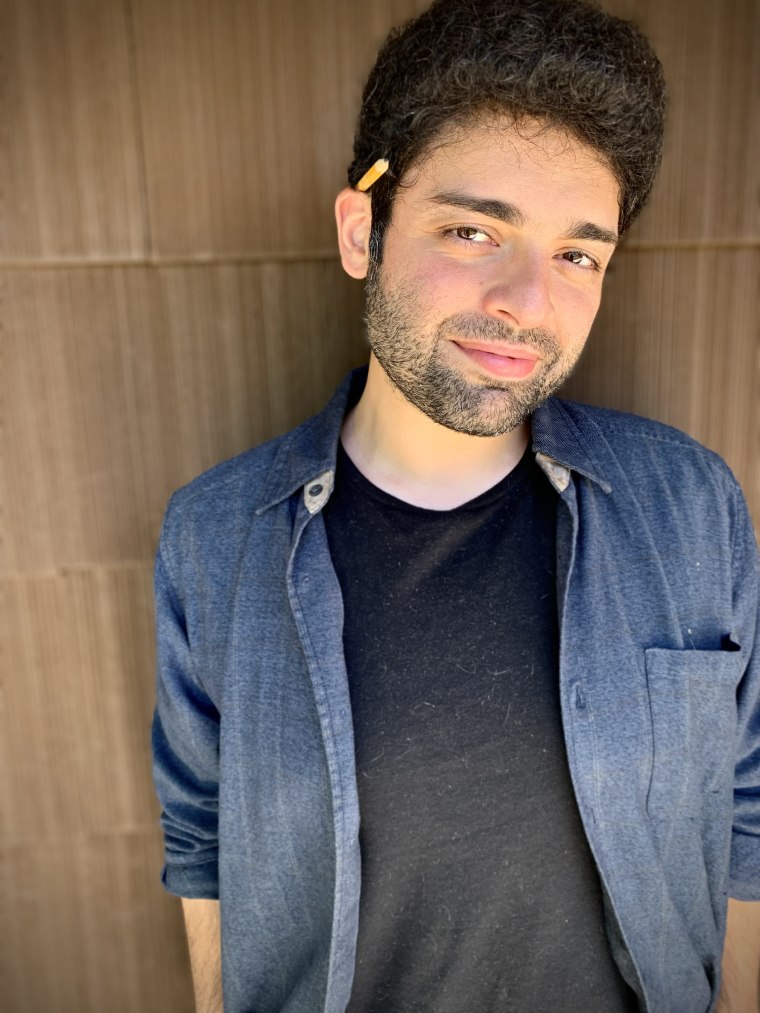What does the public want? Diverse voices or human drama? The publishing industry seems to think the two must go hand in hand for a book to be successful. A story like mine, in which the prejudice and bigotry I underwent was more subtle and accumulated over a lifetime, apparently isn’t the sort of real-life experience that publishers want to invest in –– but does that mean it wouldn’t sell?
On my journey to becoming a book author and finding a publisher who’d see the potential in my work, which largely explores elements of my Indian, Puerto Rican and Italian heritage, I’ve been repeatedly turned away. It’s relatable material to the growing population of American citizens who identify as multiracial. Most of the editors who passed on my proposal said they enjoyed it but thought a marginalized tale like mine needed to display more conflict if it was to be marketable. One editor even referred to me as a voice whose platform was still emerging.
When stories that don’t center on the negative experiences of people of color aren’t seen as valuable enough to share, it’s a disservice to the public.
Of course, the tragic story lines from groups and individuals who have experienced oppression and hardship are vital to a complete and essential literary landscape, and long overdue. But when stories that don’t center on the negative experiences of people of color aren’t seen as valuable enough to share, it’s a disservice to the public. Misunderstandings, ignorance and alienation remain a foothold in society when white readers aren’t routinely exposed to the fact that people of color aren’t monolithic, and when people of color don’t see more names and narratives in print that represent the nuances of their lives.
If agents and acquiring editors truly want to affirm their open-mindedness after confronting their lack of diversity, they’re going to have to stop putting such a limited scope on nonwhite stories and writers.
Look, I don’t expect my stories to change the world. I began writing about my own life, hoping to connect with other individuals who felt as confused or lonely as I did.

Seeing the short essays I’ve written on family, food, culture, identity and New York life find homes in respected newspapers and magazines around the country was rewarding and cathartic. I simply wrote with passion, shopping my ideas around from editor to editor, amassing a mountain of rejection while refusing to give up on stories I felt were worth sharing.
Still, it seemed like the most elevated perspectives were folks who graduated from prestigious universities or had some connection in the business world. After a while, as our culture’s attitude changed, more publications began to take chances on outsiders like me. After a piece was published, I’d receive emails from readers from near and far who related to my “mixed” life, whether they were of the same background(s) or completely different. The feedback encouraged me to write a book about my experiences, since very few existed in the marketplace.
Many months later, to my surprise, I found myself with an encouraging agent and a strong proposal for a memoir that I poured my heart into. The agency was confident and optimistic they’d land a lucrative book deal, building upon my essay-writing momentum. I couldn’t care less about the money –– chalk it up to innocence or stupidity. I’d accepted my place long ago as a working-middle-class freelance journalist and communications professional who was happy to pay the rent and take my wife out to dinner once in a while. If I got paid a few hundred bucks for a story by a news outlet or zine, I was thrilled to consider myself a professional writer.
As the proposal was being shopped around, my only goal was for it to benefit underserved audiences and prove to my family that our insignificant yet culturally rich lives had meaning. However, it soon became clear that a book had no chance of succeeding if it couldn’t be categorized and easily presented to consumers.
Perhaps sensationalizing my life a bit would’ve appeased publishers facing pressure to put out powerful material from underrepresented writers, since they hadn’t been for far too long.
But that would’ve been inauthentic. Although I come from a family who has experienced adversity in our own right, I found my strength in writing stories about love and hopefulness, paying fond tribute to my grandmother, mom and dad, and the figures who left deep impressions on my life. I can both laugh and ache when I’m often mistaken for a gas station attendant, my “foreign-sounding” name is mangled, my immigrant father is mocked in an Indian accent or I question my grandma’s quiet shame of being Puerto Rican. Presenting these stories is my way of finding and promoting common ground.
After hearing so many versions of “thank you, but no,” I began asking myself questions. Why don’t the major gatekeepers of the publishing world believe heartwarming stories from diverse writers sell? Must there always be turmoil when exploring race and ethnicity? If books can’t present the entire scope of the human experience, and only portray tragedy and darkness for people of color, what kind of damage is being done to impressionable people conditioned to feel guilt, anger and fear toward any and all minorities?
Eventually, my agency and I parted ways, and I was left with an unsellable proposal sitting on the shelf. Not a problem. I was far from the first person who couldn’t sell a book idea; even established authors have experienced rejection. I wasn’t a special case, and I didn’t expect any treatment in kind. But I still believed in the work I was creating. The next year was spent writing a middle-grade manuscript based on my unique identity, figuring kids understood the world better than adults did anyway.
During those many months, I saw the author Deesha Philyaw speak live at the Miami Book Fair. She discussed her long journey in writing her successful, award-winning debut book, “The Secret Lives of Church Ladies,” published by the small-yet-fierce West Virginia University Press in 2020. I was inspired by the book’s ability to address complex topics through fictional characters that felt whole and relatable on one level or another. During the conversation, Philyaw was candid about her process and doubts. Yet, the confidence she had in her prose was evident.
I wondered why such a brilliant short story collection wasn’t released by a commercial publisher. But if it had been, would it have been drowned out in a sea of other titles? Or perhaps good material always floats to the top. I suppose there’s no definitive answer to this crazy game, as long as one believes in oneself while playing it.
Over the past few months, I decided to dust off my proposal and send it around to any publishers willing to read it without an agent’s representation. Within weeks, I received interest from multiple editors and eventually signed with a respected press that seemed to truly believe in my work. I handed in my completed manuscript a few weeks ago. As it undergoes review, I await its fate. No matter the outcome, the publisher’s support has already meant a lot to me.
I have no idea if this passion and hard work will pay off. Whenever my book does enter literature’s competitive arena, it may sell only a few copies or thousands –– who knows? If it’s the former, would that mean the major gatekeepers were correct? Maybe. But isn’t it their responsibility to develop readers’ tastes? I’m starting to realize I’ll never fit into pre-existing molds anyway, so I might as well create my own.
